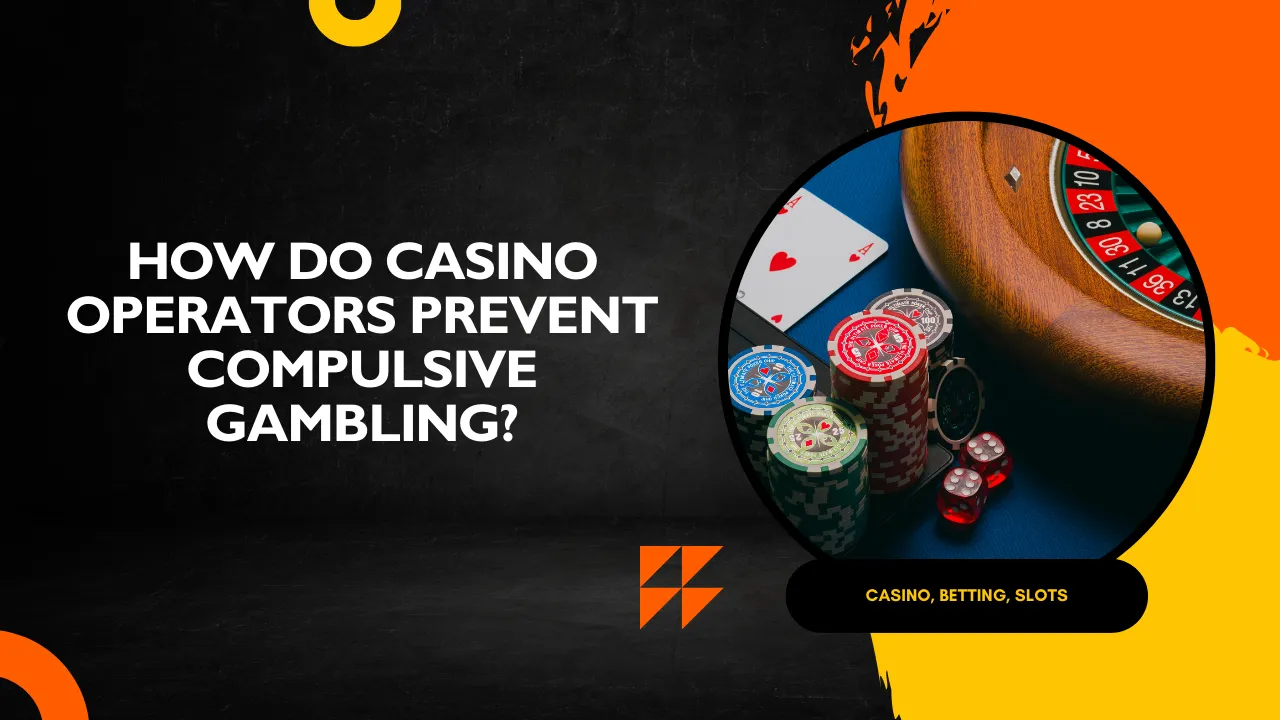Casinos are designed to be exciting, immersive, and entertaining spaces. Bright lights, captivating sounds, and the thrill of winning are all part of what makes the gaming environment so appealing. But with that appeal comes responsibility. Operators have long faced a crucial question: how can they ensure players enjoy the experience without falling into the trap of compulsive gambling?
From my perspective and research in the gaming industry, responsible gambling isn’t just a regulatory obligation — it’s a business necessity. A casino’s long-term success depends on creating sustainable entertainment, not exploiting harmful behavior. That’s why operators invest heavily in prevention measures that balance customer freedom with safety.
Understanding Compulsive Gambling
Before exploring how casinos tackle the issue, it’s worth defining what compulsive gambling means. It’s not simply playing for long hours or enjoying frequent visits to a casino. Compulsive gambling, also known as gambling disorder, is when the activity becomes uncontrollable, often leading to financial distress, damaged relationships, and emotional harm.
Casinos, regulators, and researchers recognize that while only a small percentage of players develop these problems, the consequences can be severe. This understanding is what drives comprehensive prevention strategies.
Self-Exclusion and Player Controls
One of the most effective tools casinos offer is self-exclusion. This system allows players to voluntarily ban themselves from entering casinos or using online platforms for a chosen period. In many jurisdictions, this extends across multiple operators, making it harder for someone to bypass restrictions by switching venues.
Alongside self-exclusion, operators also provide deposit, loss, and time limits. These features let players set boundaries before they start gambling, reducing the risk of impulsive behavior. For example, an online player might cap deposits at $200 per week or set a two-hour session limit. Land-based casinos are increasingly integrating similar controls into loyalty cards and digital wallets.
The Role of New Online Platforms
The rise of digital gambling has pushed responsible gaming measures to evolve even faster. Many of today’s platforms are built with responsible play at their core, integrating real-time alerts and AI-driven monitoring. Players who explore new betting sites 2025, for example, will notice that most include modern features such as reality checks, cool-off options, and spending dashboards.
These tools aren’t just add-ons; they are embedded into the design of the gaming environment. The goal is to help players remain aware of their behavior and intervene early if risky patterns emerge. For operators, offering these features isn’t only about compliance — it’s about building trust and retaining customers in an increasingly competitive market.
Staff Training and Intervention
In land-based casinos, human observation plays a major role in prevention. Floor staff are trained to recognize signs of compulsive gambling, such as repeated ATM withdrawals, visible distress, or extreme reactions to losses.
Training programs empower employees to step in tactfully — whether by engaging the player in conversation, offering information about support services, or escalating concerns to management. This human element ensures that prevention isn’t left solely to automated systems.
Collaboration with Support Organizations
Casinos also partner with problem gambling organizations, charities, and helplines to provide external support. Brochures, on-site information desks, and online links to resources are often visible throughout casinos and websites.
Some operators go further by funding treatment programs or contributing to research into gambling addiction. These partnerships demonstrate that casinos recognize compulsive gambling as a public health issue that requires collective action.
Technology and Data Monitoring
Technology has transformed how operators can prevent compulsive gambling. Using data analytics, casinos can spot unusual betting patterns or spikes in spending that suggest harmful behavior. Online platforms can even trigger automated alerts, encouraging players to take a break or review their limits.
For example, if a player who normally wagers modest amounts suddenly doubles or triples their spending in a short period, the system can flag this for intervention. This kind of proactive monitoring shows how casinos can balance customer privacy with protective oversight.
Regulatory Frameworks and Compliance
No matter how committed an operator is, prevention measures wouldn’t be effective without regulation. Governments and gaming commissions set strict rules to ensure casinos provide tools for responsible gambling and enforce protections.
In many countries, operators face significant penalties for failing to comply. Regulators often require audits, transparency reports, and independent testing of responsible gaming systems. This oversight ensures consistency across the industry and reassures players that safeguards aren’t optional.
Encouraging a Culture of Responsible Play
Beyond tools and regulations, casinos strive to normalize responsible gambling as part of the culture. Marketing materials increasingly carry clear messages about gambling responsibly. Loyalty programs and VIP services are being restructured to focus less on rewarding high spenders and more on long-term engagement.
By embedding these values into their brand, operators aim to shift the perception of gambling from a potentially harmful activity to one that, when managed responsibly, can be enjoyed like any other form of entertainment.
Balancing Entertainment and Responsibility
Casinos face the unique challenge of balancing the excitement of play with the duty to protect vulnerable individuals. Too few safeguards risk harm to players and reputational damage to the industry. Too many restrictions, on the other hand, could make the experience feel overly controlled and discourage casual players.
Finding this balance is why many operators take a layered approach — combining player-driven controls, staff intervention, technology, and external partnerships. Together, these create a safety net that allows most players to enjoy the experience without risk while supporting those who may need help.
Conclusion
Compulsive gambling is a serious issue, but the casino industry has made clear strides in prevention. From self-exclusion programs and digital safeguards to staff training and partnerships with support organizations, operators now treat responsible gambling as a core part of their business model.
As gambling continues to expand across digital platforms, the focus on prevention will only intensify. With the integration of advanced analytics, real-time monitoring, and regulatory oversight, the industry is better positioned than ever to protect players. Ultimately, the goal is to create an environment where gambling is fun, safe, and sustainable — ensuring players return not because they feel trapped, but because they feel valued and respected.




